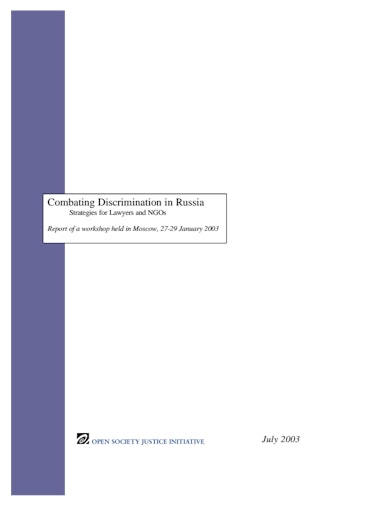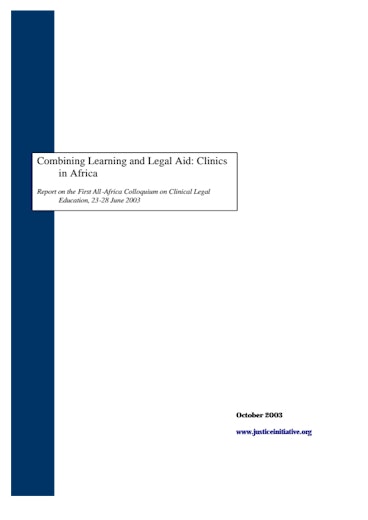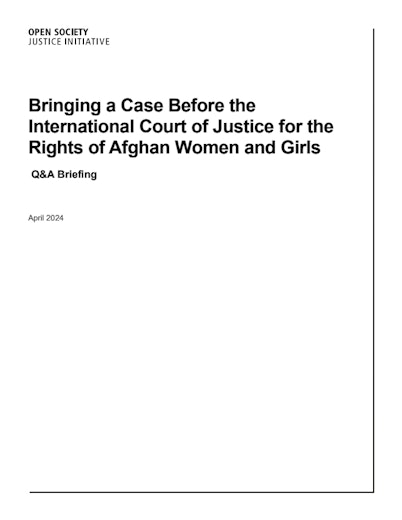Good v. Botswana
Discrimination Based on Nationality
For fifteen years, Kenneth Good was a university lecturer in political science in Botswana. He held an Australian passport. When he wrote an article that was critical of presidential succession in Botswana, the president expelled him from the country—with only 56 hours notice—on grounds of "national security." Good's treatment violates multiple provisions of the African Charter on Human and Peoples' Rights. (Keywords: Discrimination - Nationality - Freedom of Expression)
Facts
Kenneth Good, an Australian national and former professor of political science at the University of Botswana, is challenging his arbitrary termination of employment and expulsion from Botswana, following the publication of an article in which he gave the opinion that Botswana was a poor example of presidential succession in Africa. The president of Botswana subsequently exercised the powers vested in him by the Botswana Immigration Act and declared Good to be an "undesirable inhabitant" of, or visitor to, Botswana. Good was allowed 56 hours to make arrangements for his departure from the country, was not told why he was being expelled, and was not given the opportunity to contest his deportation. His attempt to challenge the deportation order in the national judicial system was not successful.
An application was filed by Interights together with lawyers in South Africa claiming that there had been multiple violations of the African Charter on Human and Peoples' Rights. They argued that his summary expulsion violated his article 7(1)(a) right to have his caused heard, which the African Commission's jurisprudence has extended to the expulsion of non-nationals. The summary nature of the expulsion, the fact that the president was not required to give any reasons for the decision to declare him an "undesirable" inhabitant, and the fact that there was no review by any court violated this right. In addition, Article 12(4) of the charter means that a non-national legally admitted into the territory of a state may only be expelled by virtue of a decision taken "in accordance with the law," which should be interpreted as requiring respect for substantive guarantees of due process embedded in international law.
The consequence of the expulsion was the violation of Good's right to disseminate opinions, protected by Article 9(2) of the charter, and the rights of others to receive information, protected by Article 9(1). His expulsion also constituted discrimination on the basis of political opinion, violating Article 2. Since Good was forced to leave his teenage daughter behind to complete her last year of secondary school, there was a violation of Article 18 which requires governments to protect family life. Finally, Good's expulsion violated Article 15, the right to work, and Article 14, the right to property, because he was deprived of his position at the university and the salary that had been guaranteed under that contract.
Open Society Justice Initiative Involvement
The Open Society Justice Initiative submitted an amicus brief to the African Commission on Human and Peoples' Rights on the question of the treatment of non-citizens.
Arguments
The Justice Initiative argued that Botswana violated each of the rights referred to in the main brief on impermissible grounds, namely, by making employing the pretext of immigration law to make impermissible distinctions between the rights of citizens and non-citizens. Only one article of the charter explicitly refers to the rights of citizens, and that is Article 13, on political participation and public employment. No other article makes a distinction between citizens and non-citizens in the enjoyment of rights. Although distinctions between citizens and non-citizens can be made, exceptions to the general principle of non-discrimination between citizens and non-citizens are limited and must be construed narrowly.
This case is currently pending before the African Commission.
The Open Society Justice Initiative files an amicus brief at the commission's 43rd session.
The African Commission declares the case admissible at its 41st session.
Related Work
Combating Discrimination in Russia: Strategies for Lawyers and NGOs
In order to combat discrimination in Russia the Open Society Justice Initiative convened a workshop in Moscow.

Combining Learning and Legal Aid: Clinical Legal Education in Africa
At the first All-Africa Colloquium on Clinical Legal Education, organized by the Open Society Justice Initiative, legal clinicians and university faculty from all over the continent came together to examine the function of legal clinics and...

Q&A: Bringing a Case Before the International Court of Justice for the Rights of Afghan Women and Girls
This paper considers 21 questions around the feasibility of bringing a complaint at the International Court of Justice against Afghanistan's Taliban for egregious and prevalent violations of women’s and girls’ rights.
